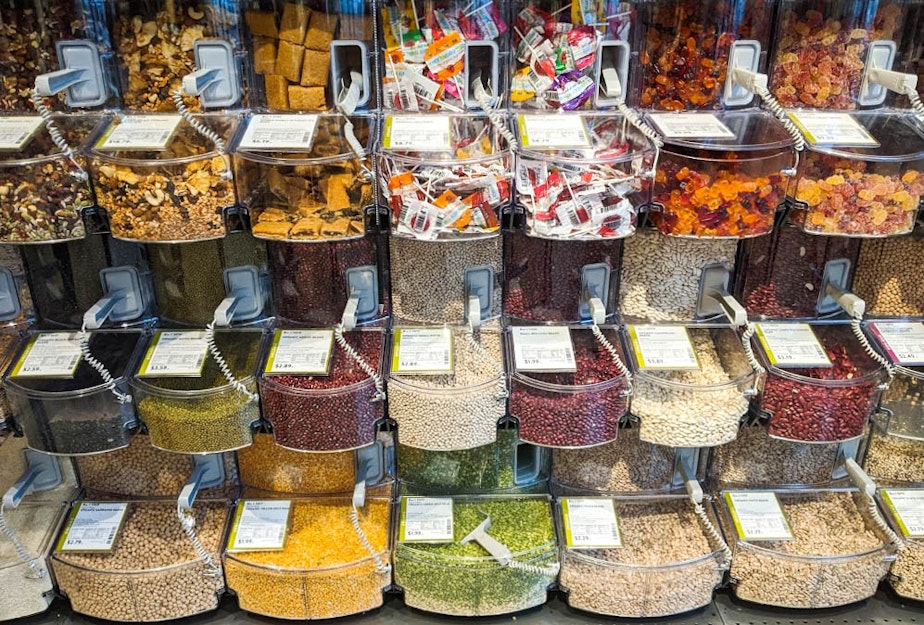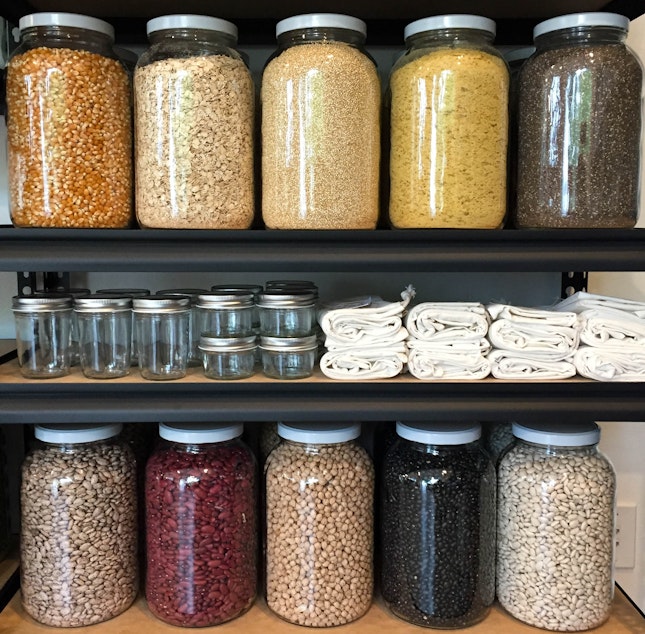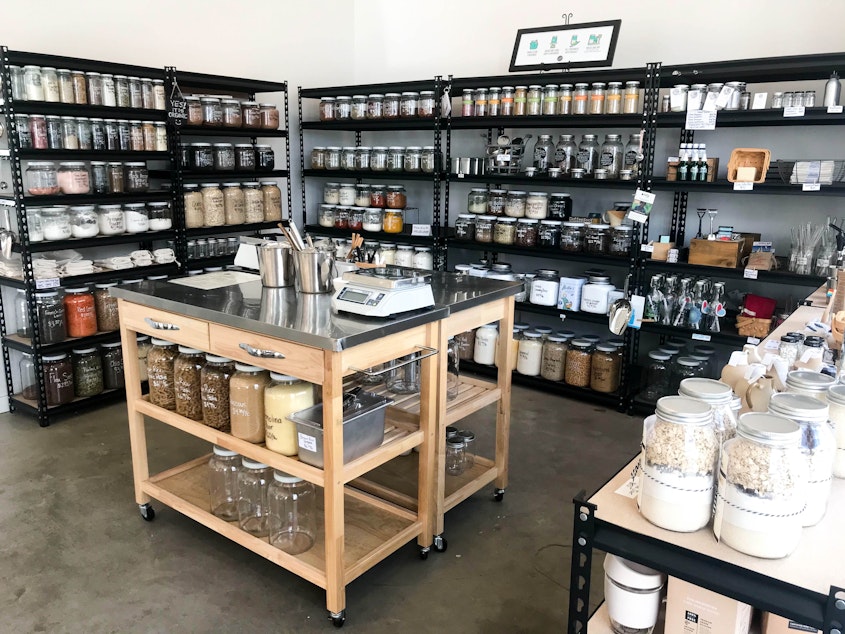3 tips for shopping in the bulk foods aisle like a pro

On weekends, Ballard Market in Seattle refills its bulk spice containers twice a day. Coffee sometimes runs out in 10 minutes.
Shopping in the bulk section can be a powerful way to minimize packaging waste. Containers and packaging account for 23% of landfilled waste and for most of the litter that pollutes our beaches and waterways.
Bulk food is often fresher than packaged food, too. At Ballard Market, bulk food manager Carrie Cumbow said people who buy jarred spices are “throwing their money away.” Not only are jarred spiced more expensive, but they contain fillers, and they’re not as fresh, so you have to use more of them.
“I can’t even imagine buying a spice in a jar after learning about bulk spices,” Cumbow said.
Taking another step in the green direction by shopping with reusable containers allows you to cast a vote for a better food system — and acknowledges that, in the end, we’re all scooping from the same bin.
Tip 1: Follow Bulk Shopping Etiquette: Bring clean containers and keep your hands out of the bins
I should note here that recycling and reducing plastic waste play a very small role in lowering personal greenhouse gas emissions. But food packaging waste is its own potent environmental problem. Single-use containers are polluting ecosystems and gumming up recycling systems.
Ballard Market’s Carrie Cumbow said she loves seeing people bring their own containers, but stresses those containers must be sterilized and clean.
“Sometimes beans and rice can get infested in people’s kitchens,” she said. “If the bulk bins get contaminated, the grocery store would be liable.” Clean containers also reduce the risk of cross-contamination with potential allergens.
Two popular reusable options are jars and cloth bags. Jars are easy to sanitize, and they make it easy to see how much you’re buying. But they require you to include the tare weight — the weight of the container — so you don’t get charged for it.
When you bring your own containers, Cumbow said, “Find a checker or someone in the bulk department.” They’ll weigh your container and give you a tare-weight sticker so that you can deduct that weight at checkout.

Justine Johnson, the director of “center store” goods for PCC, said by email that shoppers can write their own tare weight: “Weigh the container on the scale before you fill it, including the lid,” she said. “Mark the tare on your tape or label, for example; Tare-.67 or T-.67.”
Personally, I often use cloth bags with a drawstring. If the checker forgets to subtract the tare weight, it’s a less expensive mistake. They are easy to store in a larger grocery bag and, unlike glass or plastic, they don’t crack or tear. You can buy bags or make them from thrifted cloth or pillowcases.
Cumbow said people should avoid reaching into bins with their hands and ask for samples rather than taking them.
I asked Cumbow if they have problems with kids grabbing food.
She laughed. “Kids are pretty good,” she said. “It’s always adults who are the problem. They like to sample things.”
Her biggest piece of advice? “I would encourage people to ask more questions,” she said. “We have a lot of knowledge.”
Christopher Marasco, a stocker at the Ballard PCC, said he also wished more people asked questions.
His pet peeve is when the overhead bins get stuck, but instead of asking for help, people leave them half open, so the next person gets a cascade of nuts when they open it. And then, he said, the person who had nuts fall over them doesn’t ask for help either.
(I found the mechanics of this cascading nut problem a little confusing, but his point was clear — ask for help. And say hello to the people restocking your food.)

 1 of 2
A look inside Scoop Marketplace, a zero-waste store in Seattle's Central District, where owner Stephanie Lentz wants to make bulk food buying the norm.
1 of 2
A look inside Scoop Marketplace, a zero-waste store in Seattle's Central District, where owner Stephanie Lentz wants to make bulk food buying the norm.
Tip 2: Start small
If you’ve never shopped in the bulk section before, where should you start?
“Coffee and spices, if you’re shy,” said Cumbow. “It makes a huge impact environmentally. And the quality is way better.”
My husband, our household spice expert, agrees. “Paprika from the bulk section has a deep rich flavor, and I use it in everything,” he said. “Paprika from a jar tastes like chalk and really only is useful for sprinkling on deviled eggs.”
When you buy in bulk, you can buy just what you need for a single recipe.
Stephanie Lentz, owner of Scoop Marketplace, a zero-waste grocery store in the Central District, suggests doing a trash audit to figure out where most of your packaging waste comes from. Then, try buying a single food in bulk.
Some popular first items? Oats, rice, beans, and flour.

Tip 3: Shop at stores with dedicated bulk sections
Shopping at stores that are committed to their bulk section makes the process much easier.
For members of the Seattle Zero Waste Facebook group, favorite stores include Scoop Marketplace, PCC, Central Co-op, Ballard and Central Markets, and WinCo.
Many chain grocery stores don’t have a bulk food manager, and people who work there may not be trained to subtract tare weight at checkout. You can shop in bulk there, but you’ll need to use plastic bags or other lightweight containers.
And if there’s not a store with a good bulk section near year, Lentz says people should consider starting their own. “This is the time to do it,” she said. “I think we’re ready.”
